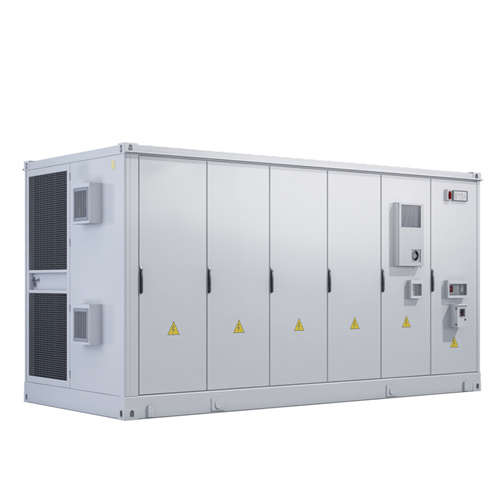About Does energy storage require smart meters
No, it’s not compulsory to have a smart meter installed. If your energy supplier offers you a one, you can refuse. But not having a smart meter means you won’t have access to time of use tariffs. You’ll also need to keep sending meter readings to your energy supplier.
As the photovoltaic (PV) industry continues to evolve, advancements in Does energy storage require smart meters have become critical to optimizing the utilization of renewable energy sources. From innovative battery technologies to intelligent energy management systems, these solutions are transforming the way we store and distribute solar-generated electricity.
When you're looking for the latest and most efficient Does energy storage require smart meters for your PV project, our website offers a comprehensive selection of cutting-edge products designed to meet your specific requirements. Whether you're a renewable energy developer, utility company, or commercial enterprise looking to reduce your carbon footprint, we have the solutions to help you harness the full potential of solar energy.
By interacting with our online customer service, you'll gain a deep understanding of the various Does energy storage require smart meters featured in our extensive catalog, such as high-efficiency storage batteries and intelligent energy management systems, and how they work together to provide a stable and reliable power supply for your PV projects.
6 FAQs about [Does energy storage require smart meters ]
Are smart meters worth it?
Energy bills are a growing concern. Many of us are making changes to our energy usage to keep our bills as low as possible, with smart meters ‒ which display how much energy we're using, and where ‒ a potentially useful aid in doing so. But, not everyone likes smart meters. So what are the big pros and cons of each meter type?
How can smart meters improve energy consumption?
Real-time energy usage monitoring: When connected with EAM and APM systems (enabled by AI and analytics), smart meters allow consumers to monitor their energy usage in real time, providing them with valuable insights into their consumption patterns.
Why should smart meters be standardized?
Standardization will enable seamless integration of smart meters with asset management systems and other smart grid components, like energy management systems and distributed energy resources. Smart meters are revolutionizing energy management, providing consumers and utility companies with real-time, accurate consumption data. Smart meters enable:
What are smart meters & how do they work?
With this data being wirelessly transmitted to an in-house display or even a user’s smartphone, smart meters allow users to understand what energy they use, how they use it, and, most importantly, how they could consume their energy more efficiently. Thankfully, the uptake in smart meters is steadily increasing.
Are smart meters compulsory?
Smart meters aren’t compulsory, so there are plenty of households actively choosing to remain on traditional meters. Some will like the fact that doing so retains an element of privacy, meaning that their energy supplier ‒ or even other residents of the house ‒ don’t have such clear information on where the energy is being used.
Can smart meters be integrated with smart home technology?
Integration with smart home technology: Smart meters can be integrated with various smart home technologies, allowing consumers to automate and optimize their energy usage.
Related Contents
- Kosovo smart energy storage battery usage
- Energy storage devices for smart grids
- New energy smart storage network
- Zambia smart energy storage manufacturer
- Solar panel smart energy storage
- West africa energy storage smart lock
- Smart grid photovoltaic energy storage system
- Use of thimphu smart energy storage battery
- Capital smart charging energy storage
- Smart grid energy storage coordination control
- Smart grid energy storage concept
- Use of smart energy storage cabinets in armenia


